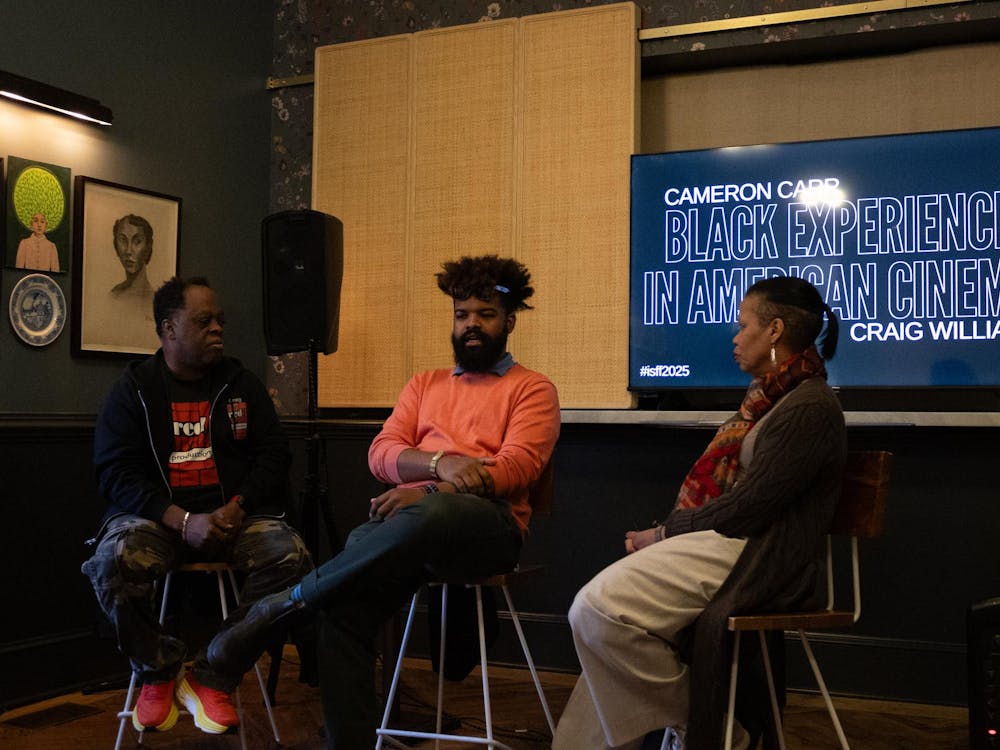The words “pompous” and “pretentious” are bound to come up in any discussion of Aaron Sorkin, given the award-winning writer’s propensity for stuffing his characters’ mouths with the sort of pseudo-intellectual babble you might expect to hear in a high school politics classroom. That said, virtually every project to bear the Sorkin brand name has met with some level of success, whether through a cult following, as was the case with the short-lived “Studio 60 on the Sunset Strip,” or a full-blown mega-fanbase, as we have seen with films like “Moneyball” and “The Social Network.” One exception to this rule, however, arrived last year in the form of HBO’s highly anticipated “The Newsroom,” which seemed predestined to serve as this generation’s “West Wing,” a critical smash that would breed more popular quotes than “The Godfather.”
Season one of “The Newsroom” generally underwhelmed critics and audiences alike, as many justifiably took the show’s script to task for its “holier than thou” attitude and one-dimensional or otherwise dull characters. Season two, which began this past summer, promises to continue the show’s streak of mediocrity, albeit with fleeting moments of insight and charm.
“The Newsroom” hones in on the professional and personal lives of anchor Will McAvoy (Jeff Daniels) and his colleagues at the fictional Atlantic Cable News channel’s “News Night,” a nightly news show with delusions of grandeur. Will, a good old-fashioned “funnyman” who sees himself as “speaking truth to power,” struggles to balance his lofty aspirations with his tumultuous off-camera relationships. Meanwhile, the other members of the news team do their best to manage their own dull affairs and to come across as anything deeper than what they truly are: cardboard cutouts and ripoffs of ensemble members from smarter shows.
This season, as Will and his faithful executive producer (Emily Mortimer, in top form) seek to expose a political scandal and then cope with the fallout, John Gallagher Jr.’s hopelessly misogynistic and obnoxious Jim Harper steals a ride on the Romney campaign bus, presumably for the purpose of allowing Sorkin and his team of writers to lambast the defeated candidate. Other over-the-top subplots attempt to tackle African politics, drone strikes and the Occupy Wall Street movement. Most end in preachy and simplistic lessons fit for an “After School Special” or a Michael Moore documentary.
In one particularly grating sequence, Will confronts an Occupy-touting teacher outside of her classroom after grilling her on live television. As the two figures exchange brief and forgettable lectures about the merits of the movement, Will comes to acknowledge his own boorish tendencies, and he ultimately asks to audit the young woman’s class, presumably demonstrating to us that even wise old men still have a lot to learn. Without the shallow dialogue, the peculiar romantic overtones and the on-the-nose symbolism of the classroom setting, a scene like this could have brought nuance and vulnerability to Will’s character. As it were, however, this moment, like so many others, concludes on a note of shattered potential.
The central problem with “The Newsroom” is that it tries too hard. Rather than take on a typical newsroom setting, the show insists that “News Night with Will McAvoy” belongs to a league of its own, transcending the schlock that allegedly dominates the world of broadcast news today. Even as the “News Night” team mis-edits audio footage, delivers panels that the producers admit to be biased and offers fairly ordinary coverage of major events, the show’s smug ‘heroes’ and ‘heroines’ become all the more self-satisfied and convinced that their unexceptional program somehow deserves a pedestal.
Arguably, viewers could conceive the show as an epic tragedy in which its central characters rise to the top, in their minds, only to eventually recognize that they amount to nothing more than any other news team and that they offer no more truth or courage than the next crew. Unfortunately, at least to this point, neither Will nor his staff has come close to this realization, and so a tragic reading seems premature. On the other hand, interpreting the show as a silly soap that simply employs newsroom politics as a background for dramatic affairs and feuds also proves problematic, since few, if any, of the relationships on display offer intrigue or excitement.
A television program need not be intellectually astute or provocative in order to make for a pleasant viewing experience — I enjoy MTV’s “Teen Wolf” as much as anyone. That said, in order to hit its stride, a show must find a cohesive identity and, more importantly, it must deliver, regardless of how shallow its goals may seem.
Unfortunately, “The Newsroom” lacks the political savvy of Netflix’s “House of Cards,” the soapy drama of USA’s “Political Animals,” and the narrative intensity of Sorkin’s pride and joy, “The West Wing.” Jeff Daniels and the other cast members do their best to elevate the material, but HBO’s news night spectacle falls flat on its face, yet again.






